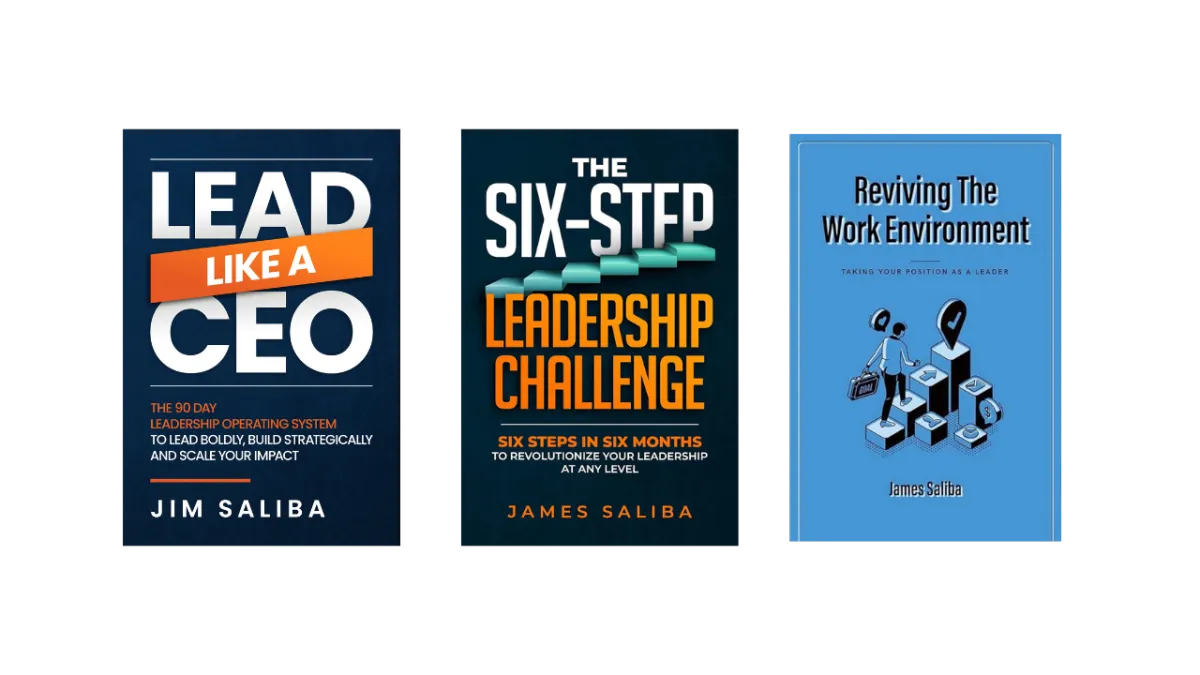Insights for Real-World Leadership
Straight talk and proven strategies for leaders who are done babysitting and ready to lead at the next level.

5 Ways for CEOs to Gain More Time
Time is our most precious resource; like other resources, it is not infinite. Time runs out.
As Peter Drucker once said, "One cannot rent, hire, buy, or otherwise obtain more time."
For CEOs, time management is particularly pertinent given the magnitude of their responsibilities and the limited time they have at their disposal. Not only is this lost time that can never be reclaimed, but failing to manage time strategically can impact the executive's mental well-being and efficiency, as well as that of their team members and overall organizational performance.
What precisely is time management, and what are the benefits?
Time management is perhaps an executive's most important tool, but what, exactly, is the definition of time management?
Time management is a process of planning and organizing projects and menial tasks and activities you and your team must complete.
By better managing their time, executives will see immediate benefits. CEOs who manage their time efficiently can prioritize tasks to avoid feeling overwhelmed and delegate them among their team members based on their skillsets.
Time management ensures that executives don't get stuck in the weeds – while it may take executives less time to create a spreadsheet, their time would be better spent on high-level tasks.
5-time management tips for creating more time
I have decided to try and help make your lives a little easier by compiling several time management skills used by successful figures that you can use to create more time.
1. Set boundaries by saying "no."
Apple co-founder Steve Jobs once said, "innovation is saying no to 1,000 things".
As a CEO, you will receive hundreds of emails, phone calls, and people approaching you for help, conversation, or advice. For this reason, many executives get stuck in multiple meetings, events, or tasks they don't have the time for.
Instead, executives must begin setting boundaries ahead of when they may be asked for their time. You are well within the right to say no to offers you see no benefit to accepting. Simply and politely explain that you are busy at this moment and are in no position to help them.
Alternatively, set time boundaries like canned responses or automated emails telling people you are out of the office or are otherwise engaged. This is a simple yet effective way of clarifying that you are preoccupied with more pressing issues.
2. Plan ahead and create a schedule.
India's first female Prime Minister of India, Indira Gandhi, once said: "Have a bias towards action – let's see something happen now. You can break that big plan into small steps and take the first step right away." She would have made a great CEO. She recognizes that big projects are made up of small, actionable takes.
While CEOs may be brilliant thinkers and planners, a good old-fashioned to-do list is a better way to manage their time. Focus on what needs to be done the next day – meetings, tasks, deadlines, and anything else that's necessary – the day before.
While it may be difficult to break down long-term goals into day-to-day tasks initially, the practice will yield great results for your organization. A 2015 study published in Psychological Science discovered that people who convert year-long goals into daily activities better work on what matters.
3. Delegate low-impact work.
Once again, I find myself quoting Peter Drucker, who wrote in his book, "The Leader of the Future", "Effective leaders delegate, but they do not delegate the one thing that will set the standards. They do it."
Put another way, do the essential work that matters while assigning low impact tasks to competent members of your team. Empowering your leadership team to handle the organization's day-to-day operations can save considerable time, allowing you to focus on more critical tasks.
4. Quit multitasking
Deepok Chopra once said, "multitasking divides your attention and leads to confusion and weakened focus," and I could not agree more. Multitasking simply doesn't work for most people.
This sentiment is supported by science. Arthur Markman, a professor in the psychology department at the University of Texas, explained that maybe 10% of the population is adept at multitasking. For the rest, multitasking is taxing on the brain, overloading its working memory, and badly hurting productivity.
Unfortunately for many people, multitasking has become habitual. To better focus on single tasks, one suggestion is having days centred on specific tasks throughout the week. For instance, Monday could be a day for high-level thinking, Tuesday for finances, Wednesday for administrative tasks, etc.
5. Schedule downtime.
Pencil in some downtime throughout each day. A ten or fifteen-minute break here and there will not bankrupt your business. Warren Buffet schedules time each day just for reading. Whatsmore, these short breaks give you time to catch your breath, collect your thoughts, review what's next, and plan before moving forward. It is also an opportunity to reflect on where you are and how you got here.
"Rest and be thankful," the quote from Wordsworth, is particularly apposite. Before moving on to what comes next, take some time to reflect and to recognize how far you have come, where you are, and (I suggest) to choose to be grateful for whatever life has brought us.
Parting advice
CEOs are constantly busy. Whether hosting meetings, finishing up phone calls or getting swamped down in never-ending paperwork and emails, the job is time-consuming.
Thus, knowing the best practices to manage your time as a CEO will not only help you make the most out of your day but hopefully cut down on some of those long hours and make your life a whole lot easier.
Leaders Who’ve Made the Shift
Michael R., Senior VP

“Jim did more in two sessions than my last coach did in six months.”
(Translation: Jim doesn’t waste your time.)
Karen H., Senior VP

“Jim made it easy to focus on the real leadership challenges.”
(Translation: No fluffy theories. Just real talk and results.)
Ashly N., Director

“Within 15 minutes, I knew I’d made the right decision.”
(Translation: You’ll know fast if Jim’s your coach.)
Stop Acting Like the Chief Fire Extinguisher.
Start Leading.
You know the endless approvals, babysitting, and check-ins aren't real leadership. Let's fix that.
© 2026 James Saliba Inc. • All Rights Reserved • Helping Tech Leaders Lead Strategically Without Firefighting • Terms & Conditions


